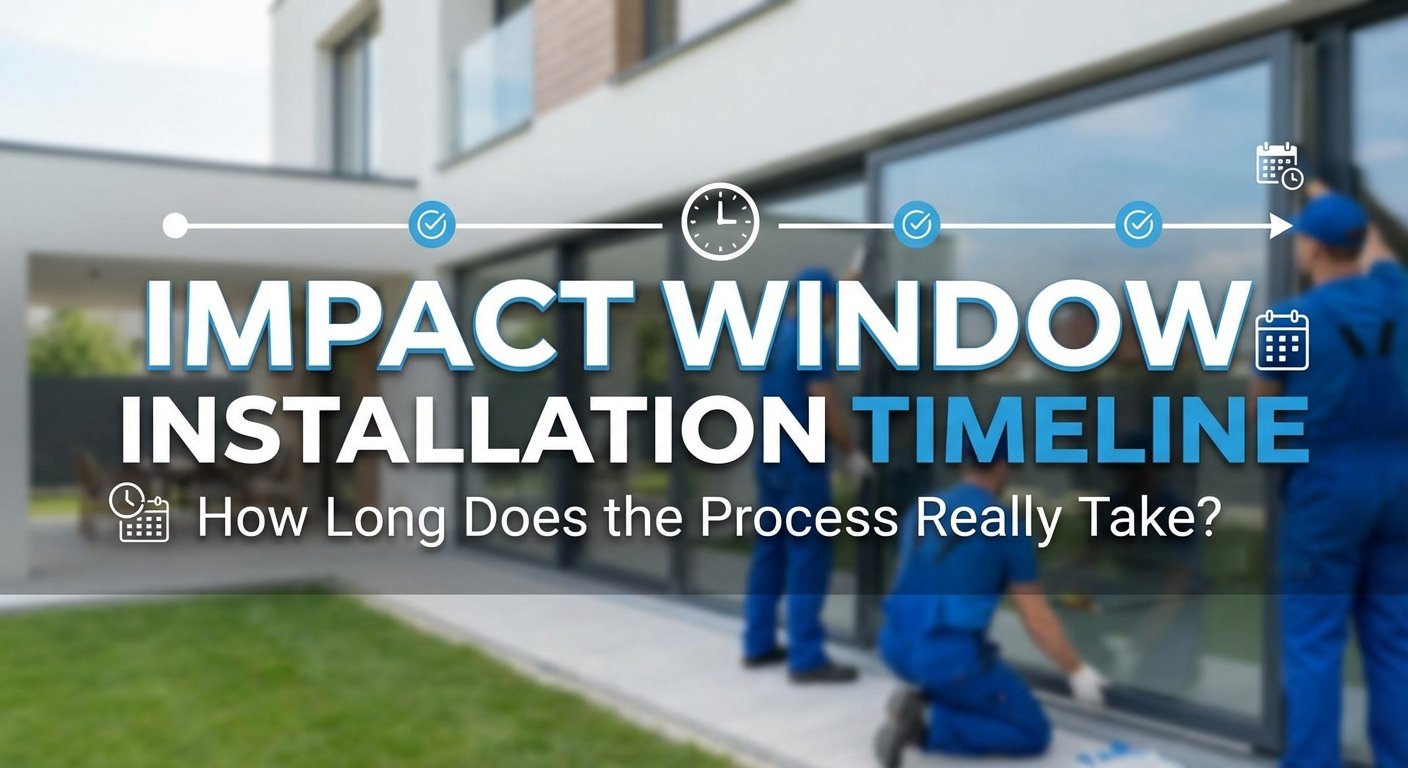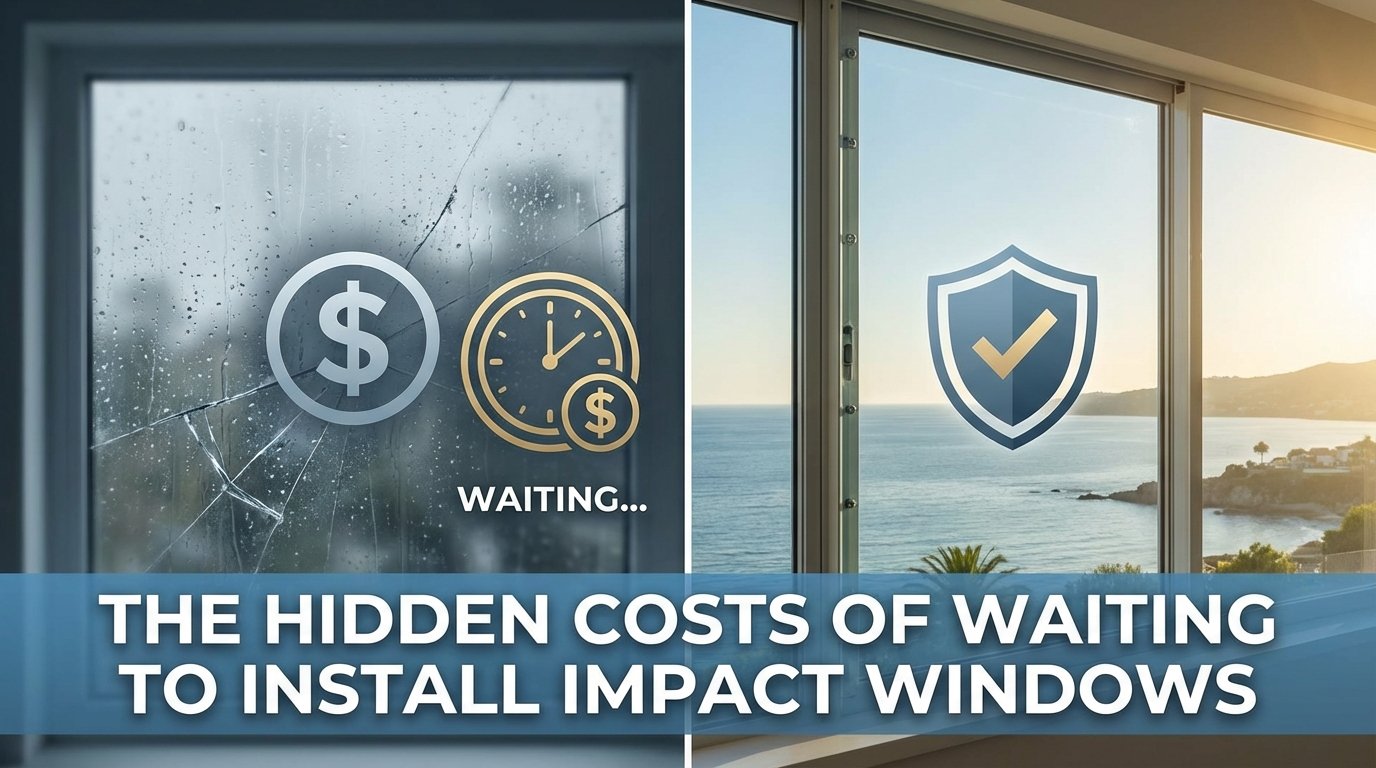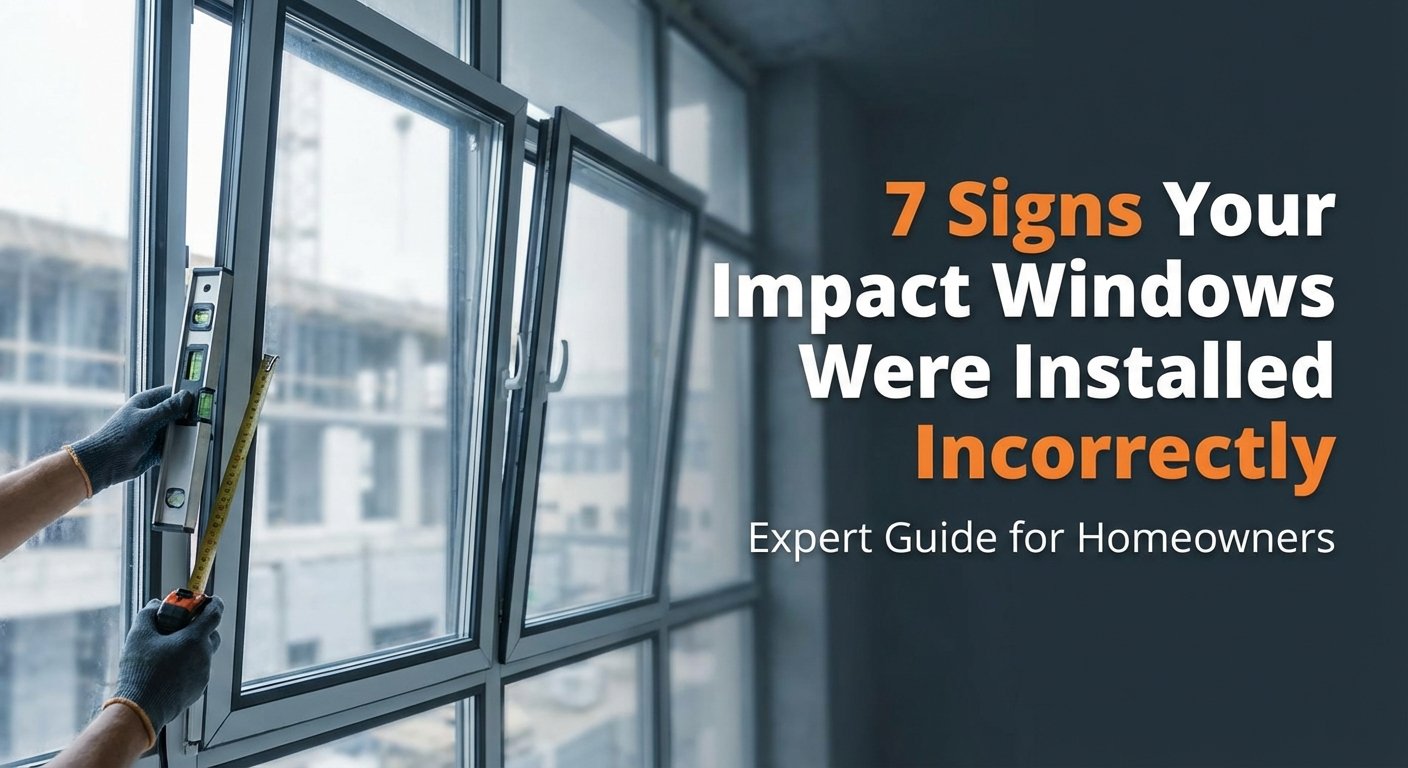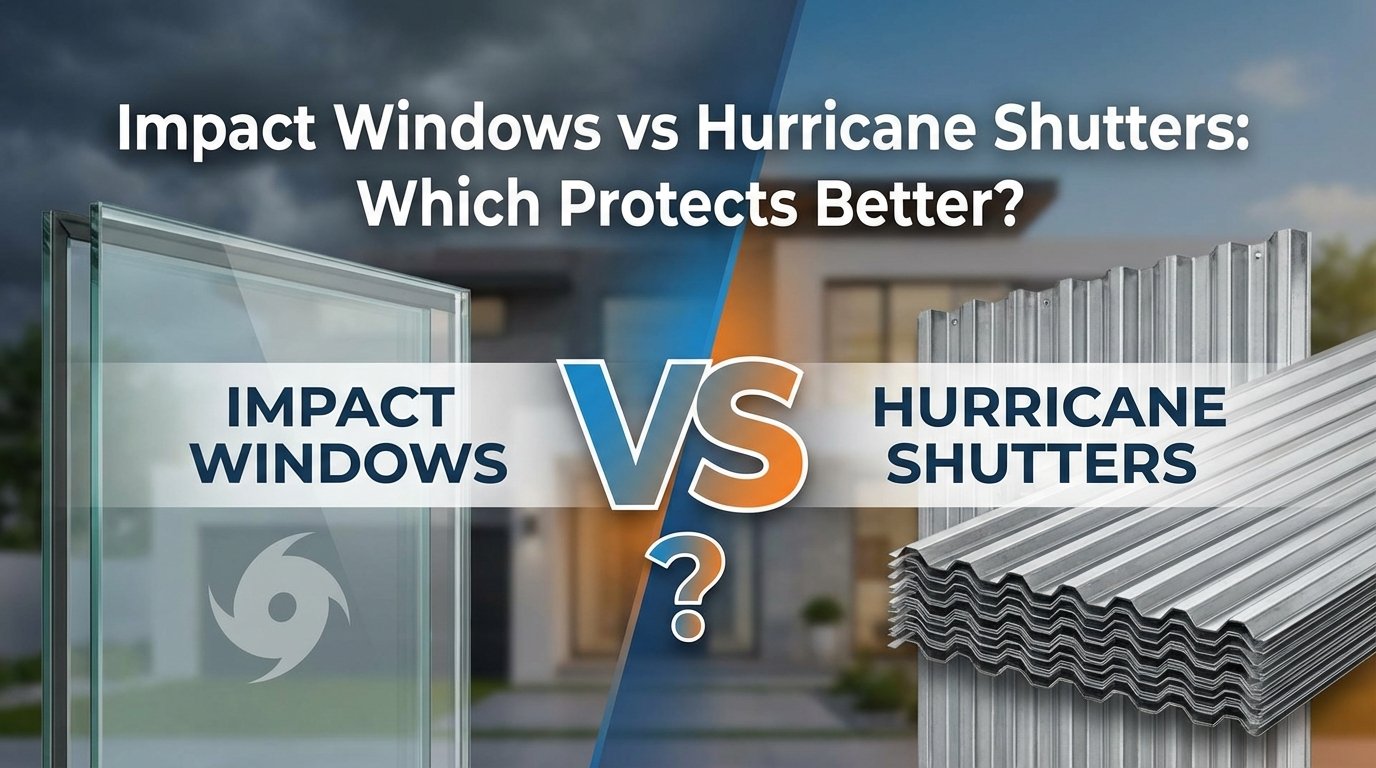Window Install Near Me: Top 3 Smart Benefits
Why Finding the Right Window Installer Matters
Window install near me is one of the most searched home improvement terms, and for good reason. Whether you’re dealing with drafty rooms, rising energy bills, or preparing for hurricane season, finding a qualified local installer is the crucial first step to a successful project.
Quick Answer: How to Find Window Installers Near You
- Get Multiple Quotes – Request at least 3 written estimates from local companies
- Check Credentials – Verify licensing, insurance, and BBB accreditation
- Read Reviews – Look for recent customer feedback on platforms like Angi, Thumbtack, or Google
- Ask About Warranties – Ensure both product and labor warranties are included
- Verify Local Experience – Choose installers familiar with your area’s building codes and climate needs
The national average for window installation is $2,650 per project, with individual windows ranging from $500 to $5,000 depending on type and features. Most installations can be completed in 1-2 days, and reputable installers will handle everything from removal of old windows to final cleanup.
For Florida homeowners like you, the stakes are even higher. Your windows need to meet strict building codes, withstand hurricane-force winds, and handle intense heat and humidity. That’s why choosing the right installer isn’t just about price—it’s about protecting your home and family.
This guide walks you through everything you need to know: recognizing when it’s time for new windows, understanding your options, navigating the installation process, and most importantly, finding a trustworthy local professional who won’t pressure you into a sale.
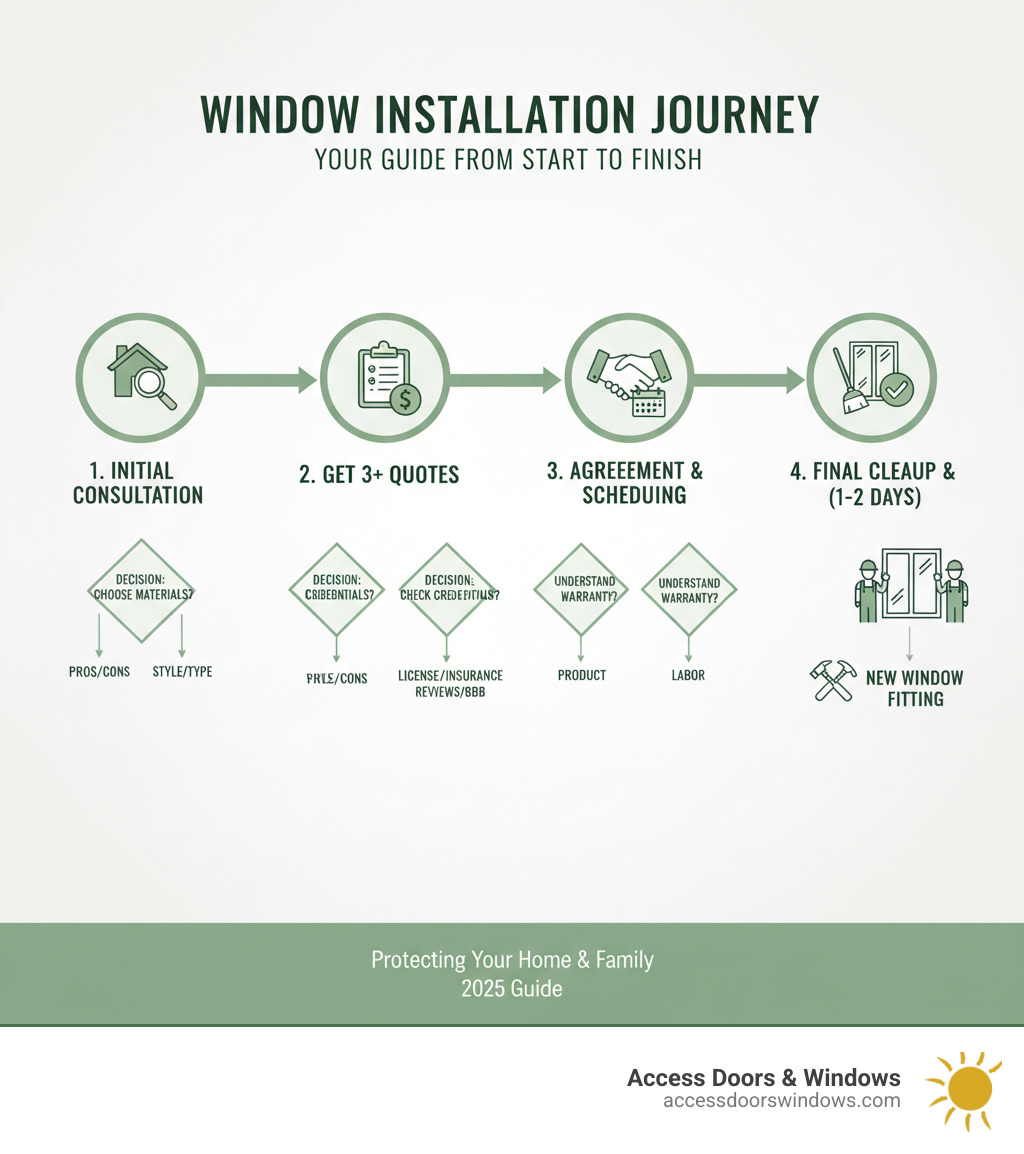
Simple guide to window install near me:
- commercial window installation near me
- home window replacement companies near me
- window replacement contractors near me
Is It Time for a Window Upgrade? Key Signs to Watch For
Your windows work hard every single day—protecting you from Florida’s heat, humidity, and hurricane-force winds. But like any part of your home, they don’t last forever. The good news? Your windows will usually tell you when they’re ready to retire. You just need to know what to listen for.
Let’s start with the most obvious sign: drafty rooms. You know the feeling—you’re standing near a window and suddenly feel a cool breeze, even though it’s closed. Or maybe your AC is running full blast, but certain rooms never quite get comfortable. That’s your window basically saying, “I can’t do this anymore.” When the seals break down and gaps form, your conditioned air escapes and outdoor air sneaks in. It’s frustrating, uncomfortable, and it’s costing you money.
Which brings us to the next red flag: high energy bills. If your electric bill keeps climbing even though you haven’t changed your habits, your windows might be the culprit. Your HVAC system has to work overtime to compensate for all that air loss. In Florida’s climate, where we rely on air conditioning most of the year, inefficient windows can add hundreds of dollars to your annual energy costs.
Here’s another telltale sign: difficulty opening or closing your windows. Maybe they stick halfway up. Maybe you need two hands and some serious muscle to get them moving. Or perhaps they won’t stay open without a prop. This usually means the frames have warped from moisture exposure or the balance mechanisms have worn out. Beyond being annoying, this is actually a safety issue—you need to be able to open windows quickly in an emergency.
Condensation between the panes is nature’s way of saying the window has given up. When you see fog or water droplets trapped between the glass layers, it means the seal has failed and the insulating gas has escaped. You can’t wipe this moisture away because it’s sealed inside. Once this happens, the window has lost much of its energy efficiency, and that foggy appearance isn’t going away.
Don’t ignore physical damage, either. Water damage or rot around window frames, sills, or the surrounding walls is serious business. This means moisture is getting where it shouldn’t, and in Florida’s humid climate, that can quickly lead to mold growth and structural problems. Similarly, cracked glass or frames aren’t just cosmetic issues—they compromise your home’s security and, during hurricane season, put your family at risk.
Finally, consider quality-of-life factors. If you hear excessive outside noise—every car, every conversation, every lawn mower—your windows aren’t providing adequate sound insulation. And if your windows just look tired and dated, they’re dragging down your home’s curb appeal and potentially its value.
The bottom line? If you’re experiencing any combination of these issues, it’s probably time to start researching window install near me options. New windows aren’t just about fixing problems—they’re about improving your home’s comfort, safety, and efficiency for years to come. And in Florida, where our windows face some of the toughest conditions in the country, upgrading to modern, impact-resistant windows is one of the smartest investments you can make.
Understanding Your Options: Window Types, Materials, and Customizations
Once you’ve decided it’s time for new windows, the next step is figuring out which ones are right for your home. With so many styles, materials, and features available, it can feel like you’re drowning in choices. But here’s the good news: understanding the basics makes the decision much easier, and we’re here to walk you through it all.
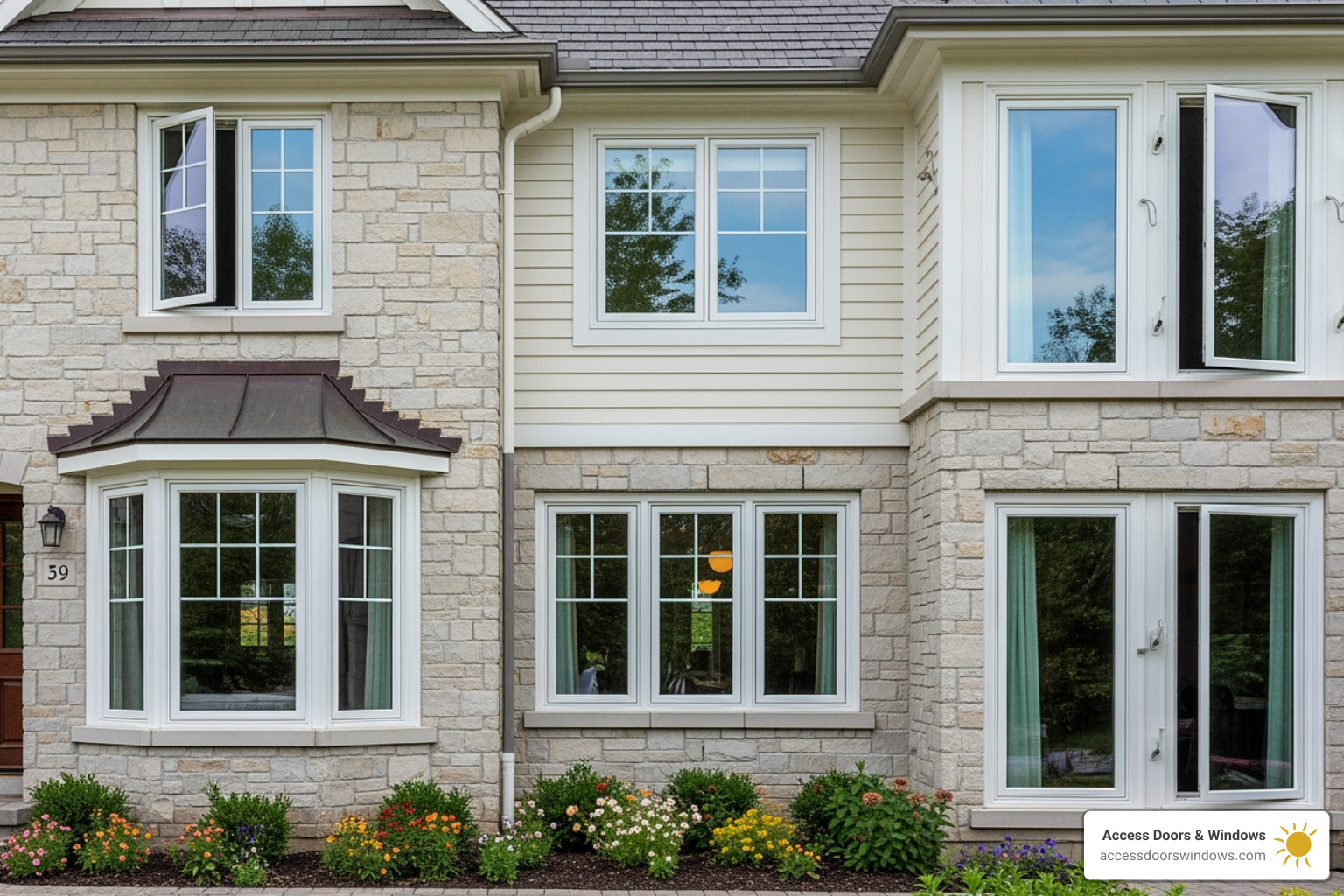
Common Window Styles
The style you choose affects both how your home looks and how well your windows work for you. Let’s start with double-hung windows, which you’ll find in homes across America. These feature two sashes that both slide up and down, giving you flexible ventilation options. You can open the top for fresh air while keeping the bottom closed for safety, or vice versa.
Single-hung windows look similar but only the bottom sash moves. They’re typically a bit less expensive than double-hung, though you sacrifice some ventilation flexibility. Both styles work well in most rooms and are easy to clean from inside your home.
If you’re looking for maximum airflow, casement windows are hard to beat. These crank open outward like a door, creating an unobstructed opening that catches breezes beautifully. They’re especially popular above kitchen sinks because they’re so easy to operate even when you’re reaching over a counter. Some models can be as tall as 8 feet, making them perfect for rooms with high ceilings.
Sliding windows (sometimes called gliding windows) work just like a sliding glass door, moving horizontally along a track. They’re a practical choice for kitchens, bedrooms, and living rooms, especially in spaces where you don’t have room for a window to swing outward.
For rooms with gorgeous views, picture windows are your best friend. These large, fixed windows don’t open, but they frame your outdoor scenery like a work of art and flood your room with natural light. They’re often paired with operational windows on either side to provide ventilation when needed.
Bay and bow windows create a cozy nook that extends outward from your home. Bay windows typically feature three panels set at angles, while bow windows have four or more panels that form a gentle curve. Both add extra interior space—perfect for a reading bench or display area—and they’re stunning focal points in living rooms and bedrooms.
Awning windows are hinged at the top and crank open from the bottom. Here’s what makes them special: you can leave them open even during Florida’s afternoon rain showers, letting in fresh air and that relaxing sound of rainfall without water coming inside. They’re often installed higher on walls to maintain privacy while providing ventilation.
Finally, specialty shapes like circles, arches, and triangles add unique architectural character to your home. While they typically don’t open, they create dramatic visual interest and can transform an ordinary wall into something memorable.
Choosing the Right Frame Material
The material you choose for your window frames matters just as much as the style. It affects how long your windows last, how much maintenance they need, and how well they insulate your home. Let’s break down your options.
| Material | Durability | Cost | Maintenance | Insulation |
|---|---|---|---|---|
| Vinyl | Excellent, resists heat transfer, minimal upkeep | Mid-range | Low (no painting, easy to clean) | Good (designed to resist heat transfer) |
| Wood | Excellent, with proper care | High | High (requires painting/staining) | Superior (natural insulator) |
| Aluminum | Very good, strong, slim profiles | Mid-range | Low (low-maintenance, durable) | Moderate (can conduct heat/cold more) |
| Fiberglass | Excellent, highly stable, strong, energy-efficient | High-mid | Low (resists warping, fading) | Very good (strong insulator) |
Vinyl frames are incredibly popular in Florida, and for good reason. They resist heat transfer, won’t rot or corrode in our humid, salty air, and never need painting. Just an occasional wipe-down keeps them looking great. They offer solid insulation and fall right in the middle of the price range.
Wood frames provide the best natural insulation and timeless beauty that many homeowners love. However, in Florida’s climate, they require regular maintenance—painting or staining every few years—to prevent moisture damage. If you’re willing to invest the time and money, wood delivers best elegance and performance.
Aluminum frames are strong, durable, and low-maintenance. Their slim profiles allow for larger glass areas and sleek, modern looks. The downside? Aluminum conducts heat and cold more readily than other materials, which can affect energy efficiency unless the frames include thermal breaks.
Fiberglass frames offer excellent stability and energy efficiency. They resist warping, fading, and damage from our intense sun and humidity. While they’re typically more expensive than vinyl, many Florida homeowners find the superior performance worth the investment, especially for window install near me projects where long-term durability matters.
Custom and Specialty Windows
Yes, we can absolutely get a custom window installed for you! Every home is unique, and sometimes standard sizes just won’t do. Customization lets you tailor your windows to fit your home’s specific needs and your personal style.
Custom sizes solve the problem of non-standard openings. Whether your home has unusual dimensions or you’re replacing windows in an older house with unique measurements, custom-sized windows ensure a perfect fit and proper performance.
Unique shapes go beyond standard rectangles to create dramatic architectural statements. Arched windows above doorways, circular windows in gables, or triangular windows in vaulted ceilings add character that makes your home stand out.
For Florida homeowners, impact-resistant glass isn’t just an option—it’s often essential. Our hurricane impact-resistant windows are engineered to withstand extreme weather, providing ultimate hurricane protection and peace of mind during storm season. They’re designed to meet Florida’s stringent building codes, and while they represent a significant investment, they protect what matters most: your home and family.
Low-E coatings are microscopic layers applied to the glass that work like invisible sunscreen for your windows. They block solar heat gain during our scorching summers while still allowing warmth in during cooler months. This smart energy management reduces your reliance on air conditioning and can significantly lower your utility bills.
Argon gas fills between window panes might sound high-tech, but the concept is simple: argon is denser and less conductive than regular air, which means it insulates better. When sealed between double or triple panes, argon dramatically improves your window’s ability to keep heat out (or in, depending on the season). Our SolarZone™ insulated glass packages combine these features for superior thermal performance, cutting energy consumption and reducing UV damage by over 75%.
Speaking of panes, double-pane glass is standard in quality windows, but triple-pane takes insulation to the next level. When combined with Low-E coatings and gas fills, triple-pane windows provide maximum energy efficiency—though they do cost more upfront.
Now, let’s talk honestly about cost. Customization adds to your investment. A standard double-hung, energy-efficient window measuring 3 feet by 4 feet might run around $500-$550. That same size in a specialty fiberglass exterior with all-wood interior could reach $1,500. High-end options like bay or bow windows with specialty glass and custom framing can go as high as $5,000 per window. The national average for a complete window installation project is $2,650, but custom features will naturally push that higher.
The key is finding the right balance between your needs, your budget, and your home’s requirements. That’s where working with experienced professionals makes all the difference in your window install near me search.
The A-to-Z of Window Installation: From Consultation to Clean-Up
Let’s walk through what actually happens when you decide to get new windows installed. Understanding the process from start to finish helps you know exactly what to expect, and honestly, it makes the whole experience less stressful.
The Initial Consultation: What to Expect
The journey to new windows starts with a free in-home consultation. Think of this as a relaxed conversation about your home’s needs—no pressure, just information.
When you schedule the appointment, we’ll find a time that works for your schedule. The meeting typically takes about 90 minutes, which gives us enough time to really understand what you’re looking for.
Our project specialist will arrive ready to do some homework. They’ll inspect and measure your existing windows and openings carefully. Accurate measurements are crucial because even a fraction of an inch matters when you’re ordering custom-fit windows for your home.
This is also when we talk about your goals. Are you tired of high electric bills? Worried about hurricane protection? Maybe you just can’t stand those drafty rooms anymore, or perhaps your windows are so old they detract from your home’s appearance. Whatever your reasons, we want to hear them.
Based on what you tell us, we’ll review your options together. We’ll discuss different window types, frame materials, and glass packages—including our hurricane impact-resistant options and energy-efficient Low-E coatings. As an authorized installer for brands like PGT Windows & Doors and CGI Windows, we can show you a range of quality products that fit different budgets and needs.
At the end of the consultation, you’ll receive a transparent, no-obligation quote. We believe in honest pricing, and as a military family-owned business, we’re not about high-pressure sales tactics. You’ll have all the information you need to make the right decision for your home and family.
The Installation Process Step-by-Step
Once you’ve accepted your quote and we’ve scheduled your installation, the real work begins. But don’t worry—our licensed and insured team makes it as smooth as possible.
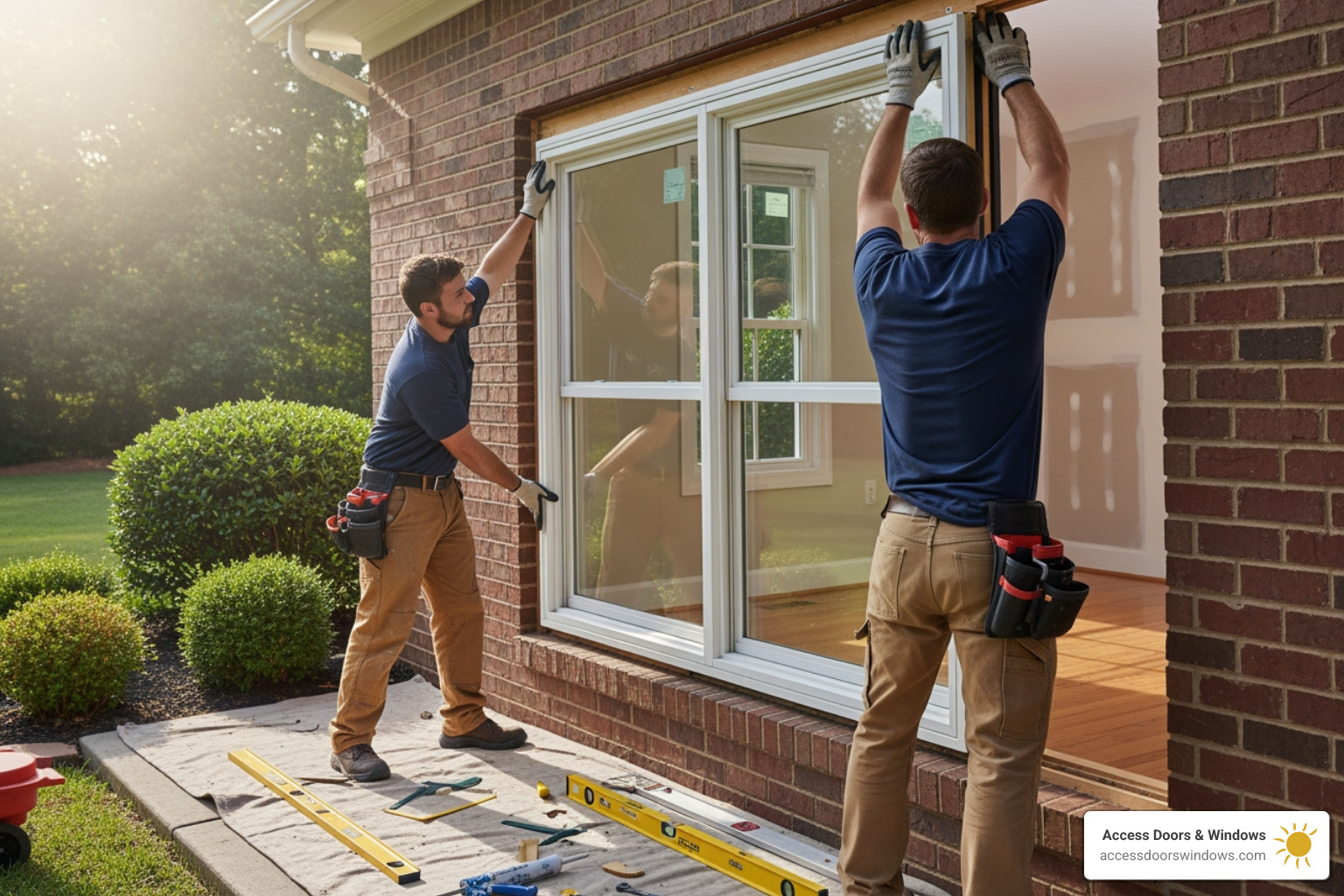
First, let’s clarify the difference between new-construction windows and replacement windows. New-construction windows have a nailing fin and are installed directly to the house frame—these are typically used in brand new homes or major renovations where the wall studs are exposed. Replacement windows (sometimes called insert or pocket-fit windows) are designed to fit into your existing window frame. This is less invasive and often less expensive, making it the go-to choice when your existing frames are still in good condition.
Before installation day, we recommend preparing your home by clearing a path to the windows. Take down curtains, blinds, and wall hangings near the work area. If you have furniture close to the windows, either move it or cover it with plastic or sheets to protect it from dust. These simple steps help our crew work efficiently and keep your belongings safe.
On installation day, our team starts by removing your old windows. This includes the sash, frame, and any old caulk or insulation that’s seen better days. We’re careful during this step to avoid damaging the surrounding walls or trim.
Next comes installing the new unit. The window is precisely positioned in the opening—fitted into the existing frame for replacement windows, or secured directly to the house framing for new construction. Our installers make sure each window is perfectly plumb and square. This isn’t just about appearances; proper alignment ensures your windows operate smoothly and seal correctly.
The insulation and sealing step is critical, especially here in Florida where humidity and intense weather are daily realities. We thoroughly caulk and insulate around each window to create an airtight, moisture-resistant barrier. This protects your home from water intrusion and helps maintain the energy efficiency you’re paying for.
Before we call it done, there’s a final inspection. We test each window to make sure it opens and closes smoothly, locks securely, and looks great. We’ll also walk you through the warranty information and any product care instructions.
Finally, there’s the site cleanup. We haul away your old windows and any debris, sweep up, and leave your home as clean as we found it—maybe cleaner. We take pride in the whole experience, not just the installation itself.
Timeline and What’s Included in a standard window install near me
Here’s what most homeowners really want to know: how long will this take, and what exactly am I paying for?
Most window installations are completed within 1-2 days, depending on how many windows you’re replacing and their complexity. A single window replacement might take less than an hour, while larger projects with multiple windows, or specialty installations like bay windows, naturally take longer. Hard-to-reach windows on upper floors can also add time to the project.
When you hire us for a standard window install near me, here’s what’s included in your investment:
Professional labor by our licensed and insured installation team is the foundation of the service. We also handle installation in the same size opening, assuming your existing opening is structurally sound. Our team takes care of all the caulking and insulating to ensure proper sealing against Florida’s weather. We perform thorough operation testing on every window to guarantee smooth function and secure locking.
Before we leave, we’ll review your warranty and product instructions with you, so you know exactly how to care for your new windows. We also include removal and haul away of your existing windows or storm windows—you won’t have to worry about disposal. And of course, complete jobsite cleanup is part of our standard service.
While these items are typically included, some situations might require additional fees. For example, if you have an old AC unit installed in a window opening that needs removal, or if there are unusual materials that incur specific dump fees, we’ll discuss these upfront in your initial quote. No surprises, just honest communication about what your project requires.
How to Find the Best “Window Install near me”
Finding the right window installer can feel like searching for a needle in a haystack. But here’s the thing: taking the time to find a qualified and trustworthy professional isn’t just important—it’s essential for protecting your investment and your home. Let’s walk through exactly how to find a reputable window install near me that you can trust.
Vetting Local Window Installation Companies
Think of choosing a window installer like hiring someone to care for your family—because in a way, that’s exactly what you’re doing. Your windows protect your loved ones from Florida’s hurricanes, heat, and humidity. So how do you separate the pros from the pretenders?
Start by getting multiple quotes. We recommend requesting at least three written bids for your project. But here’s the key: make sure these estimates come from actual on-site visits, not just phone calls or online forms. A reputable installer needs to see your home, measure your openings, and assess the work required. When comparing quotes, don’t just look at the bottom line. Compare what’s actually included—materials, labor, cleanup, haul-away, warranties, and any potential extra fees.
Next, verify licenses and insurance. This isn’t optional—it’s absolutely critical. Any company you hire should be fully licensed and insured in Florida. This protects you from liability if someone gets hurt on your property or if the installation goes wrong. Don’t be shy about asking to see proof of both. As licensed and insured installers ourselves, we understand why this matters so much to homeowners.
Then dive into online reviews. Platforms like Google, Angi, and Thumbtack are goldmines of information about a company’s real-world performance. Look for patterns in the feedback. Do customers consistently praise their professionalism? How does the company handle problems when they arise? A few negative reviews aren’t necessarily dealbreakers—no company is perfect—but watch for red flags like unresolved complaints, missed deadlines, or poor communication.
Finally, ask for local references. A confident, established installer will happily connect you with previous customers in your area. Speaking directly with someone who’s been through the process can answer questions you didn’t even know you had. Ask about their overall experience, the quality of the finished work, and whether they’d hire the company again.
When we sit down with homeowners, we believe in honest, straightforward conversations. No high-pressure tactics, no inflated promises—just transparent information to help you make the best decision for your home and budget.
The Importance of Warranties and Accreditations
Here’s a question we hear often: “What kind of warranty or guarantee is offered on window installation and the windows themselves?” It’s a smart question, and the answer tells you a lot about who you’re working with.
There are actually two types of warranties to consider. The product warranty comes from the window manufacturer and covers the unit itself—the glass, frames, hardware, and seals. Many quality windows come with impressive coverage, including double lifetime warranties that protect against defects in materials and workmanship for as long as you own your home. That’s the kind of confidence you want backing your investment.
The labor warranty covers the actual installation work. A reputable installer should stand behind their craftsmanship with at least a one-year labor warranty, though some offer even longer coverage. This protects you if issues arise from the installation itself—improper sealing, misalignment, or other workmanship problems. We stand by our professional installation because we know our team does it right the first time.
Beyond warranties, certain accreditations serve as quality markers you can trust. Benefits of a BBB Accredited business include working with a company that’s been evaluated against high standards of trust and ethical business practices. The Better Business Bureau rates businesses from A+ to F based on how they interact with customers and resolve disputes. It’s an independent measure of reliability.
NFRC ratings might sound technical, but they’re actually your friend when comparing windows. The National Fenestration Rating Council provides independent, standardized ratings for energy performance—things like U-factor (how well the window prevents heat loss), Solar Heat Gain Coefficient (how much solar heat passes through), and Visible Transmittance (how much light gets through). These ratings let you compare apples to apples when shopping for windows.
ENERGY STAR certification is another seal of approval worth looking for. Windows with this label meet strict energy efficiency guidelines set by the Environmental Protection Agency. In Florida’s climate, where your AC runs hard most of the year, ENERGY STAR windows can make a real difference in your monthly utility bills while reducing your environmental footprint.
As a military family-owned business serving Florida from our offices in Fort Myers and Deerfield Beach, we’re committed to more than just installing windows. We’re here to provide energy-efficient, code-compliant products that offer ultimate hurricane protection for your home. We’re licensed and insured, authorized to install trusted brands like PGT Windows & Doors and CGI Windows, and dedicated to your complete satisfaction—without any high-pressure sales tactics.
Finding the best window install near me takes a bit of homework, but it’s worth every minute. The right installer becomes a partner in protecting and improving your home for years to come.
Explaining the Cost of New Windows
Let’s talk about money. We know that investing in new windows is a significant decision, and you deserve to understand exactly what you’re paying for. The good news? When you know what factors affect the price, you can make smart choices that fit your budget and your home’s needs.

Key Factors That Influence Your Final Price
When you’re searching for window install near me quotes, you’ll quickly notice that prices can vary quite a bit. That’s because several important factors come into play.
First, window type and size make a big difference. A basic single-hung or picture window will naturally cost less than something more elaborate like a casement or bay window. And of course, a larger window requires more materials and labor than a smaller one.
The frame material you choose also impacts your investment. Vinyl tends to be the most budget-friendly option, while wood and fiberglass sit at the higher end of the spectrum. But remember, you’re not just paying for the material itself—you’re investing in durability, insulation, and long-term performance.
Here’s where things get really interesting: your glass package. This is often the biggest cost variable. Single-pane glass might be cheap upfront, but it’s essentially throwing money out the window (pun intended) when it comes to energy bills. Double-pane is the standard starting point. From there, you can upgrade to triple-pane glass, add Low-E coatings that reflect heat, or include argon gas fills for better insulation.
For us Florida homeowners, hurricane impact-resistant glass deserves special mention. Yes, it costs more than standard glass—sometimes significantly more. But consider what you’re getting: protection for your family during storms, lower insurance premiums, improved security, and peace of mind. That’s not just a window upgrade; that’s an investment in your home’s safety.
Labor rates vary depending on where you live in Florida and how complex your installation is. Most reputable companies, including us, provide project-based quotes rather than hourly rates. This gives you clarity on exactly what you’ll pay.
The number of windows you’re replacing affects your total project cost, though installing multiple windows at once can sometimes reduce the per-window price. And finally, project complexity matters. Are we doing a straightforward replacement window install, or does your existing frame have rot that needs repair? Do you need custom sizing? Are we working with specialty shapes or difficult-to-reach locations? These factors all influence the final price.
Understanding Average Costs for window install near me
So what should you actually expect to pay? Let’s break down some real numbers.
The national average window installation cost is $2,650 per project, with individual windows typically running around $600 each. A standard double-hung, energy-efficient window measuring 3 feet by 4 feet usually falls in the $500-$550 range. That’s your baseline.
From there, prices can climb based on the factors we just discussed. Window installation projects generally range from $100 to $1,000 per window, depending on the type and complexity. At the high end, a beautiful bay or bow window with specialty glass and custom framing can reach $5,000 or more—but the dramatic change it brings to your home can be absolutely worth it.
Here’s the thing: these are just averages. Your actual cost will depend on your specific home, your choices, and your location. Whether you’re in Fort Myers, Deerfield Beach, Boca Raton, or anywhere else in our Florida service areas (Palm Beach County, Broward County, Lee County, Charlotte County, Pinellas County, Hillsborough County, Manatee County, or Sarasota County), we’re happy to provide a personalized quote that’s custom to your exact needs.
And if the total investment feels overwhelming, don’t worry. Many companies offer financing options to help spread out the cost. We believe every Florida homeowner deserves quality, hurricane-resistant windows, and we’ll work with you to make that happen.
Frequently Asked Questions about Window Installation
We know you have questions, and we’re here to provide clear answers to some of the most common inquiries about window installation. These are the questions we hear most often from homeowners just like you who are searching for “window install near me.”
Do window installers work in the rain?
This is a common question, especially in Florida where afternoon showers are practically a daily occurrence! The short answer is: it depends on the severity.
Most professional installers can work in light rain without issue. A little drizzle won’t typically stop the work. However, heavy rain, strong winds, or thunderstorms will cause delays—and for good reason.
First and foremost, there’s safety to consider. Strong winds and thunderstorms create unsafe conditions for installers, especially when working on ladders or handling large window units. No project is worth risking someone’s safety.
Beyond that, there’s the practical matter of protecting your home. Heavy rain can cause moisture to enter your home during the installation process, potentially leading to water damage inside the walls or insulation. That’s the last thing any of us want.
Finally, the effectiveness of sealants and caulk can be compromised in very wet conditions. Since a proper weather-tight seal is crucial for your new windows to perform as they should, installers will wait for better conditions to ensure the job is done right.
So while a light drizzle might not halt work, our installers will always prioritize both safety and the integrity of your home. If weather conditions are too severe, we’ll reschedule to ensure your installation is completed properly.
What’s the difference between a new-construction window and a replacement window?
This is one of the most important distinctions to understand when planning your project, and it affects both the installation process and the cost.
New-construction windows are designed for homes where the wall framing is exposed. These windows come with a nailing fin—a flange that extends around the perimeter of the window frame. This fin is fastened directly to the exterior sheathing of the house, creating a very secure, weather-tight seal from the outside. You’ll typically see new-construction windows used in brand new homes, room additions, or during major remodels where the old window and frame are completely removed down to the rough opening in the wall studs.
Replacement windows, sometimes called insert windows or pocket-fit windows, are designed to fit into an existing window frame. If your existing window frames are structurally sound and in good condition, replacement windows are a less invasive and often more affordable option. The old window sashes are removed, and the new window unit is installed directly into the existing frame. This approach preserves your interior and exterior trim, making for a quicker installation with less disruption to your home.
During your in-home consultation, we’ll carefully inspect your existing windows and help you determine which type is best for your specific situation. If we find rot or structural damage in the existing frames, we might recommend full replacement down to the studs, even if you initially thought you could use replacement windows. We’ll always be honest about what your home needs.
How can I prepare my home for the installation crew?
Preparing your home before we arrive helps ensure a smooth and efficient installation process. It also protects your belongings and makes the day easier for everyone involved. Here’s what we recommend:
Clear a path to all windows being replaced, both inside and outside your home. Our installers will need to move freely with tools and window units, so removing any obstacles beforehand is a big help.
Remove window treatments like curtains, blinds, shades, and any decorative items from around the windows. These can get in the way during installation and may be damaged by dust or debris.
Protect your furniture and belongings by moving items away from the windows. If you have furniture that’s too heavy or difficult to move, cover it with plastic sheets or drop cloths. The installation process involves cutting and sometimes hammering, which can generate dust and vibrations, so we also recommend securing or temporarily removing any wall hangings or artwork near the work area.
Ensure access for our crew. If there are any security systems, alarm sensors, or other obstacles around the windows, please let us know beforehand so we can plan accordingly.
Finally, secure your pets in a safe area away from the work zone. This keeps them comfortable and safe while protecting our installers from unexpected encounters with protective family members!
We’ll always communicate any specific preparation needs during your consultation, and we’re happy to answer any questions you have about getting ready for installation day. Our goal is to make the process as stress-free as possible for you and your family.
Conclusion
Replacing your windows is more than just a home improvement project—it’s an investment in your family’s comfort, your home’s value, and your peace of mind. Throughout this guide, we’ve walked you through the key signs that it’s time for new windows, from drafty rooms and high energy bills to failing seals and outdated frames. We’ve explored the different window styles, materials, and customization options available, helping you understand what works best for your home and budget. And most importantly, we’ve shown you how to find a trustworthy local installer who will treat your project with the care and professionalism it deserves.
For those of us living in Florida, the decision to upgrade windows carries extra weight. Our homes face unique challenges—intense heat, high humidity, salt air, and the very real threat of hurricanes. That’s why choosing impact-resistant windows isn’t just about comfort or energy savings; it’s about protecting what matters most. The right windows, properly installed, can mean the difference between weathering a storm safely and facing costly, dangerous damage.
When you’re searching for window install near me, the cheapest option isn’t always the best value. Look for installers who are licensed and insured, who offer solid warranties on both products and labor, and who have a proven track record in your community. Ask questions during your consultation, read reviews, and trust your instincts. A reputable installer will never pressure you into making a quick decision.
At Access Doors & Windows, we understand these concerns because we’re your neighbors. As a military family-owned business with offices in Fort Myers and Deerfield Beach, we’ve built our reputation on honest communication, quality workmanship, and respect for our customers. We specialize in hurricane impact-resistant windows and doors that meet Florida’s strict building codes, and we’re authorized to install trusted brands like PGT Windows & Doors and CGI Windows. We believe in providing you with all the information you need to make the right choice for your home—without any high-pressure sales tactics.
Whether you’re dealing with a single problematic window or planning a whole-home upgrade, you deserve an installer who will listen to your needs, answer your questions, and deliver results that last. Ready to take the next step? Explore our network of professional window installation companies to connect with experienced installers who can bring your vision to life. Your home—and your family—deserve windows that work as hard as you do.

